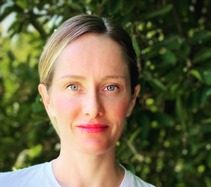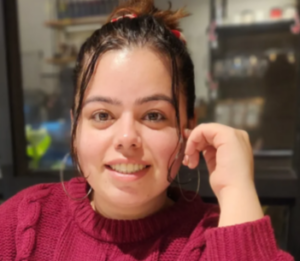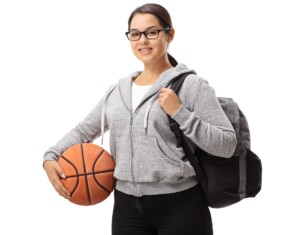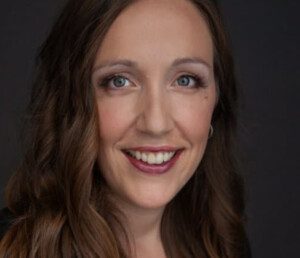Is it just a stereotype or is it pretty much universal that every single autistic child is clumsy and not athletically inclined?
I have a diagnosis of Level 1 Autism Spectrum Disorder.
Yet all through grade school, I was among the first to be chosen on teams during gym class.
The gym teacher would ask who wanted to be “captains.” This occurred quite a bit through grade school.
The two captains would first choose their friends.
Then I’d be chosen, usually the third or fourth choice. It was well-known that I was “good in gym.”
One day we were in the parking lot of the small Catholic school playing kickball.
A kid would pitch the ball by rolling it towards the kicker who was waiting at home plate.
So that day, someone really kicked it good, a swift line drive coming straight for my area.
I deftly caught the ball in my chest, keeping it there – something that was difficult for the other kids to do, in that it usually popped out of their arms.
I was more agile and coordinated than nearly all the neurotypical kids.
Unfortunately, the school had no formal sports teams for kids younger than sixth grade, and there was only one sport for the older kids anyways: softball.
In grade school I began playing ping pong (table tennis) because in our basement was a ping pong table.
I regularly played my father and older brother, who were better than me. As a result, I got quite proficient by junior high.
In junior high was a ping pong table in the recreation room. I was so good at beating ANY boy (I was the only girl who played), that the boys began accusing me of cheating.
How do you cheat in ping pong?
They couldn’t accept that a girl was beating them and eventually they refused to play me.
In high school I stunk at volleyball because the volleyball program stunk.
But in college I joined the volleyball club and acquired good skill.
After college I moved to Chicago and continued playing volleyball, up to 20 hours a week in mostly pickup games among both men and women, with a men’s height net, amassing significant skills.
The “Little Professor” Under the Radar
My brother would tell me that I was a “natural athlete.” He and I would make fun of the fact that many people couldn’t even catch a ball with a mitt.
He’d imitate a klutz trying to do that. We’d talk about how clumsy so many people were.
There is no data on what percentage of autistic people are natural athletes or have always had good hand-eye coordination since childhood.
However, poor coordination and clumsiness are common among autistic kids.
The percentage of autistic children who experience difficulties with movement or coordination may be as high as 80 percent.
But what about the other 20 percent?
“I was a very fast runner and swimmer as a child and good at sports like netball, table tennis and rounders, etc.,” says Dom Silvera, diagnosed with autism at 44.
She continues, “I was always said to have good coordination by teachers and be one of the first to be chosen for sports teams.
“Individually and in teams I always won local and regional races and competitions and was a sprinter and long jumper for Luton United in the UK.
“I first became a faster runner than other kids when I was playing British Bulldog at school, and realized that if I also leapt forward with each running step, then this would maximize my speed.
“All this could have been one of the reasons why it was never dreamed of that I could be autistic, as autistic people are stereotyped as having poor coordination.”
Clarissa Harwell, LCSW, is a therapist diagnosed with autism at 43.
“I’m not clumsy at all and was a competitive horseback rider,” she says.
We can only speculate how many athletically inclined adults with undiagnosed autism are out there.
“Motor difficulties are very common in autistic people (an estimated 87 percent of autistic people experience motor deficit), but they are not actually part of the diagnostic criteria for autism,” says Dr. Jessica Myszak, licensed psychologist, and director of The Help and Healing Center, whose practice is mostly autism assessment for adults.
“Many other mental health conditions, such as ADHD, also commonly have a strong overlap with motor deficits, and it seems to be related to connections in the brain and how different parts of the brain are working with one another,” explains Dr. Myszak.
“While it can be helpful to identify motor difficulties so that therapies like physical therapy or occupational therapy can be resources, this is not something that all autistic people experience.”
We should all know that plenty of NT kids have poor coordination. I witnessed this myself in gym class all throughout my schooling.
I saw neurotypical girls in my gym class struggling to get decent vertical height on a trampoline, while I could jump the highest in the class.
One NT girl after another failed to do the “swivel twist” on the trampoline, while I was a natural at it.
I’ve always been able to do cartwheels in a straight line, yet, even as a child, I could never understand why linear cartwheels were so difficult for my classmates.
I’ve also always been able to walk on my hands. Nobody taught me this. It was my show-off move at school.
In adulthood I’ve plenty of times witnessed poor coordination at company picnic volleyball games.
Neurotypicals would literally stand there and not know what to do with their hands as a ball was lobbing towards them, and get hit in the chest – even face – with the ball.
It’s not accurate to state that every single autistic child is clumsy or struggles with coordination.
It’s not accurate to assume that an autistic child can’t have natural hand-eye coordination and be good at running and jumping.
It’s also not accurate to assume that autistic kids — including those whose coordination lags behind their peers — can’t still be a productive member of a sports team.
Melissa Baker’s son, 16, was diagnosed with ASD at 14, and is on his school’s soccer team. He’s even scored.
“Scoring is one of the most satisfying feelings,” he says. “It was during an inter-school tournament, and I remember all my teammates cheering for me.
“Even though I’m autistic and have difficulty in social interactions, that moment made me feel like I belonged.
“All it took was just some basic coordination and good mentorship that my coach gave me.
“He didn’t lose patience with me and worked on my coordination until I became a team player.”
Elite Soccer Player Discloses Autism Diagnosis
As an update to this article, I thought I’d include a portion about Lucy Bronze, diagnosed with autism and ADHD in 2021.
Certainly, her athletic skills had already been evident in childhood, being that she’s a leading soccer player who won the FIFA The Best award in 2020.
Lucy helped England win the Euro 2022; she helped them reach the final of the 2023 World Cup. She won the Women’s Champions League five times.
Lucy Bronze is on the Autism Spectrum as a world class athlete.
Being that her diagnosis came in adulthood, we have to wonder just how many elite or professional athletes out there have undiagnosed autism!
Maverick Dom Silvera is an autistic single pareBronze has long been one of the leading players in women’s football, winning the FIFA The Best award in 2020. She helped England win the Euro 2022 and reach the final of the 2023 World Cup. She has also won the Women’s Champions League five times, twice with Barcelona and three times with French side Lyon.nt who expresses her autism self-advocacy through writing.
 Clarissa Harwell, LCSW, has worked with a diverse range of clients for 15+ years including families experiencing homelessness, children who’ve experienced abuse and neglect, new parents, adults impacted by severe mental illness, and children and teens engaging in high-risk behaviors.
Clarissa Harwell, LCSW, has worked with a diverse range of clients for 15+ years including families experiencing homelessness, children who’ve experienced abuse and neglect, new parents, adults impacted by severe mental illness, and children and teens engaging in high-risk behaviors.
Dr. Jessica Myszak, a psychologist who specializes in autism assessment for both children and adults, is the founder of Autistic Support Network. She sees clients in-person in the Chicago area and over telehealth in 31 states. Learn more about her practice at helpandhealingcenter.com.
 Melissa Baker is the founder of FoodQueries, a website dedicated to providing information regarding delicious food recipes that are easy to make and answering all of the silly questions related to food storage and spoilage.
Melissa Baker is the founder of FoodQueries, a website dedicated to providing information regarding delicious food recipes that are easy to make and answering all of the silly questions related to food storage and spoilage.
 Lorra Garrick has been covering medical and fitness topics for many years, having written thousands of articles for print magazines and websites, including as a ghostwriter. She’s also a former ACE-certified personal trainer. In 2022 she received a diagnosis of Level 1 Autism Spectrum Disorder.
Lorra Garrick has been covering medical and fitness topics for many years, having written thousands of articles for print magazines and websites, including as a ghostwriter. She’s also a former ACE-certified personal trainer. In 2022 she received a diagnosis of Level 1 Autism Spectrum Disorder.
.












































